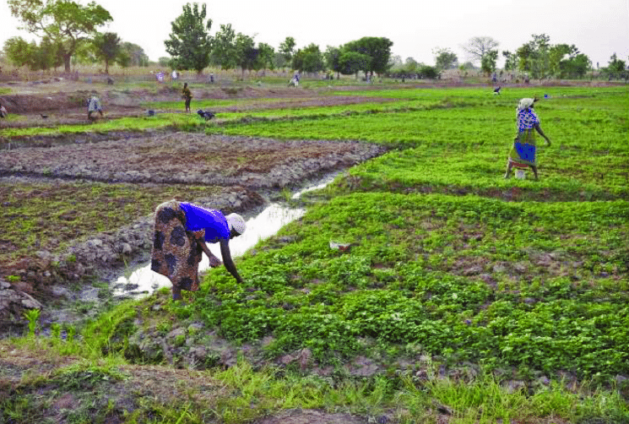Head of programmes of the Peasant Farmers Association of Ghana, Dr Charles Nyaaba, has dispelled allegations that members of the Association are perpetuating an illegality by exporting their produce.
He argued that such allegations do not hold since farmers engage in trade purposely for profit.
Speaking on the Super Morning Show on Monday, he said: “what we need to understand is that the poultry farmer is into business by producing poultry, selling either the broilers or the eggs for money. The crop farmer is also into business, and is producing and looking for attractive markets for him to be able to remain in business.
"Once you produce as a farmer, you expect to also shift the cost to the consumer so that you will also be in business. So if Ghanaian buyers refuse to go to places like Gushegu to go and buy, what crime has the farmer committed for getting buyers in neighboring countries to come and buy those products? Because our Ghanaian buyers refuse to go to places like Gushegu due to poor roads.
"If a different buyer comes to buy the produce I produce legally, with my money, then you have to call me a criminal. I think that’s an unfair statement," he added.
"The farmer is not doing anything wrong. The farmers are not those sending those produce to the neighboring countries. They send their produce to the market, buyers come there to buy the product and send it to the neighboring countries," he said.
Government placed a temporary ban on the export of grains last year as a measure to protect the collapsing poultry industry.
Export of all grains must be accompanied by an approved export permit, duly signed by the Trade Minister.
However, the enforcement of this directive has been a challenge, giving room for the smuggling of these grains out of the country. In effect, the country loses over GHC¢166 million.
JoyNews investigations have also revealed how the complicity of immigration and customs officials, farmers, as well as poor roads in Chereponi in the North East Region, are fueling the illegal export of soya beans and other grains to Togo, Nigeria, and Benin.
Dr. Nyaaba mounted a strong defense for members of his outfit, insisting that they are not to blame for the development.
“We all need to understand that [farmers need to benefit] once they invest so much. An NPK bag of fertilizer is going for GH₵400 cedis, Urea is going for GH₵450 cedis, and the cost of producing one acre ranges from GH₵3,000 to GH₵3,700.
He further confirmed that farmers from, especially the southern part of the country refuse to travel to the North where the grains are usually produced to purchase them due to poor roads, hence, their decision to trade with other buyers who come their way.
Latest Stories
-
It won’t be business as usual, remain humble – Fifi Kwetey to party members
21 minutes -
Ebenezer Ahumah Djietror appointed as new Clerk to Parliament
1 hour -
Actress Benyiwaa of ‘Efiewura’ TV series dead
2 hours -
Ashanti Regional Chief Imam dies at age 74
2 hours -
Africa Arts Network calls for tax reform to save Ghana’s theatre industry
2 hours -
SSTN Ghana Chapter reaffirms commitment to economic growth under new leadership
2 hours -
Inlaks strengthens leadership team with key appointments to drive growth across sub-Saharan Africa
3 hours -
Green Financing: What Ghana’s Eco-startups need to know
3 hours -
CHAN Qualifiers: Amoah confident of beating Nigeria
3 hours -
Governments deprioritising health spending – WHO
4 hours -
Lordina Foundation brings Christmas joy to orphans
4 hours -
Yvonne Chaka Chaka to headline ‘The African Festival’ this December
4 hours -
Nigerian man promised pardon after 10 years on death row for stealing hens
4 hours -
Patrick Atangana Fouda: A Hero in the fight against HIV passes away
4 hours -
MGA Foundation deepens support for Potter’s Village
4 hours

